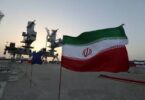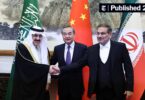Addressing a press conference in Islamabad after holding talks with the Prime Minister Imran Khan and foreign Minister Shah Mehmood Qurehi, US Republican Senator Lindsey Graham said the United States should replace its transitional relationship with Pakistan into a strategic partnership for the common good of the two countries. Describing his meetings with new Pakistani leadership Senator Graham said that both countries have a unique opportunity to transform the relationship into the one that is mutually beneficial. He also spoke about expanding trade relations.
The change of tone and tenor of President Trump and his administration towards Pakistan and favourable voices of American lawmakers reflect Washington’s keenness for political settlement in the war torn Afghanistan for which Pakistan can play crucial role in consultation with the regional players including China, Iran, Central Asian States and Russia.
Current diplomacy may lead to either a political settlement which brings a semblance of peace to Afghanistan and the region or a unilateral or disorderly US-NATO forces withdrawal which will set the stage for next round of more dangerous civil war in Afghanistan yet other scenarios are possible, as several forces clash and coalesce in the Afghan end game. Brimming with confidence the Taliban has refused to negotiate with beleaguered Ashraf Ghani government and want to talk only to the US about time table of withdrawal of foreign forces, release of Taliban prisoners and lifting of ban and other restrictions on Taliban leaders. The Taliban’s rigid stance has emerged as the most important obstacle in way of efforts for a political settlement.
Islamabad has confirmed its influence in arranging for participation of high level Taliban representatives in the recent Abu Dhabi talks. However, Iran’s influence over the Afghan groups has increased considerably in the recent times. It has carefully cultivated relations with and provided support to the Taliban while preserving its traditional links with components of former Northern Alliance. Iran’s foreign Minister Mohammad Jawad Zarif, in his recent visit of New Delhi disapproved a dominant role for the Taliban in future setup in Kabul. Given the US-Iran hostility Tehran will not ease America’s exit from Afghanistan.
Russia has dealt itself in the game, opening cooperation with the Taliban and attempting to initiate an intra-Afghan dialogue through the “Moscow format.” Russia is worried about the spillover effect of Daesh to the Central Asian States and even to the mainland Russia. In a skillful diplomatic move Moscow hosted second international peace conference on Afghanistan in November last year. It drew delegates from the Western-backed government in Kabul and a group representing the Taliban, as well as officials from a dozen nations including the US. Opening the conference, Russian Foreign Minster Sergey Lavrov said that participation of both Afghan leaders and the Taliban was an important contribution aimed at creating favourable conditions for the start of direct talks. He emphasised the threat posed by the Islamic State of Iraq and Levant (ISIL) in Afghanistan, saying that the terrorist organisation has relied on foreign sponsors in a bid to turn Afghanistan into a springboard for its expansion in central Asia.
Pakistan is also cognizant of the threat of Daesh and the government has embarked upon a proactive diplomacy to facilitate a political settlement in Afghanistan. The recent shuttle diplomacy of the foreign Minister Shah Mehmood Qureshi by visiting Kabul, Tehran, Beijing and Moscow reflect the resolve for such a settlement which brings peace and stability in Afghanistan.
The Taliban leadership must realise the danger in overplaying their hand and must not repeat the mistake of 2001 by not expelling Osama Bin Laden from Afghanistan. Without a face-saving formula for an orderly withdrawal, the US may revert to more aggressive options including the privitisation of war as recommended by ex-Blackwater’s Erik Prince; installing a hardliner like Hanif Atmar in Kabul; extending clandestine support to the elements of militant Islamic State , which Russia and Iran allege already happening. The ISIS fighters have fought bloody battles against the Taliban besides carrying out terrorist attacks inside Afghanistan and Pakistan.
Islamabad’s positive diplomatic role, coordinated with China, and responsive to the interests of other regional players must be leveraged to advance Pakistan’s interest; normalisation of Pak-US relations; eliminating TTP terrorism in Pakistan which is carried out from Afghan territory; return of Afghan Refugees; and curbing BLA activities in Baluchistan.






